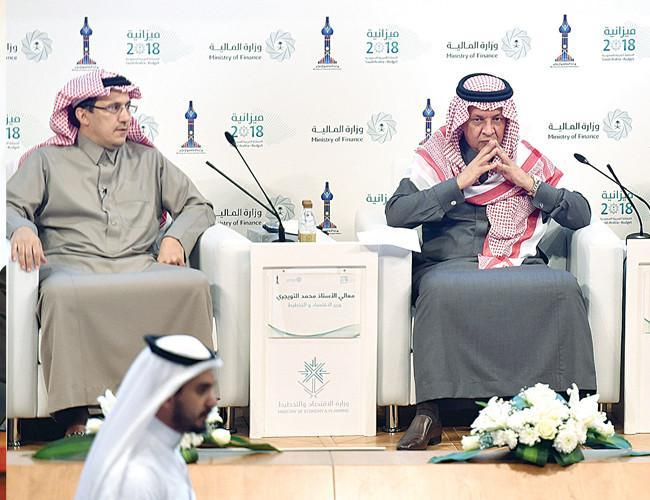Saudi Arabia to spend big as economy shrinks
RIYADH - AFP

Saudi Arabia said on Dec. 19 its economy contracted for the first time in eight years due to painful austerity measures as it announced record spending to stimulate growth.
The OPEC kingpin said gross domestic product for 2017 shrank by 0.5 percent due to a drop in crude production in line with an agreement with major oil producers aimed at boosting prices.
Oil sector GDP fell 2 percent in 2017, the ministry said.
The last time the Saudi economy contracted was in 2009, when GDP fell 2.1 percent after the global financial crisis sent oil prices crashing. Riyadh also posted a higher-than-expected budget deficit in 2017 and forecast another shortfall next year for the fifth year in a row due to the drop in oil revenues. It unveiled plans to spend more than ever in 2018 in a bid to stimulate the sluggish economic, saying it expects GDP to grow by 2.7 percent.
The kingdom has set aside 978 billion riyals ($260.8 billion) for expenditure, up 10 percent on this year, said the finance ministry.
“The 2018 expansionary budget includes a number of new development projects,” said powerful Crown Prince Mohammed bin Salman, who oversees economic affairs.
“About 50 percent of the new budget will be financed from non-oil sources,” he said, quoted by the official Saudi Press Agency.
The contraction comes as the world’s top oil exporter tries to cope with persistent budget deficits that began in 2014 when crude prices plummeted. In the past four years, Riyadh posted a total of $258 billion of budget deficits, drew on $240 billion of its reserves and borrowed around $100 billion.
King Salman said the country would “continue to decrease its dependence on oil to reach just 50 percent” of total revenues.
The finance ministry estimated a deficit of $52 billion for 2018.
It said the deficit for 2017 came in at $61.3 billion, or 9.2 percent of GDP, and higher than the expected $53 billion.
The shortfall is still 25 percent lower than the $82 billion posted in the previous year.
King Salman told the cabinet that Saudi Arabia expects to continue posting deficits through to 2023.
Revenues in 2018 were estimated to be 783 billion riyals ($208.8 billion), up 13 percent on the previous year’s projections.
Actual revenues for the current fiscal year rose by a healthy 34 percent compared with 2016 to $185.6 billion due a sharp increase in both oil and non-oil revenues.
















